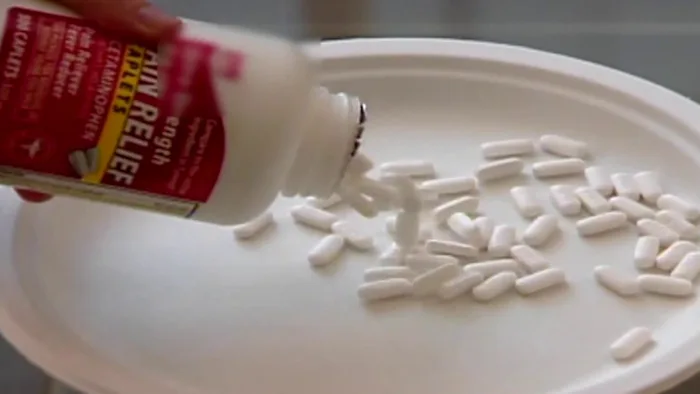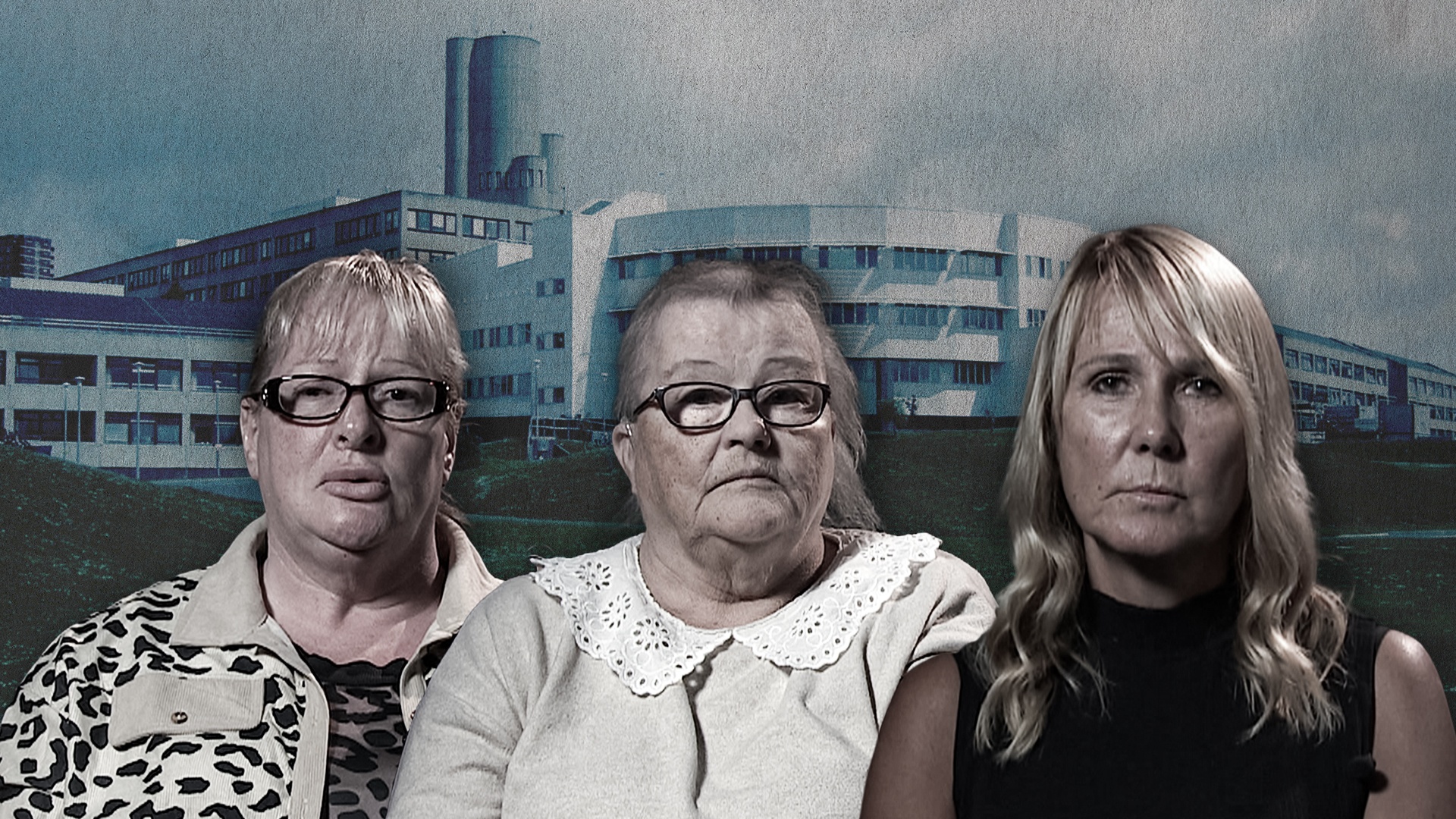‘They found no link’: What five scientists say about paracetamol and autism after Trump claims
By Amber Allott
Copyright northernirelandworld

US President Donald Trump has linked paracetamol during pregnancy with autism in a new announcementBut scientists refute these claims, saying they are not supported by research Experts maintain paracetamol is safe to take during pregnancy within recommended limits There is also not enough evidence that using cancer drug Leucovorin as a treatment will be effective, others say
Scientists are fighting back against claims autism in children is tied to expectant mothers taking paracetamol, as the US poises to take action.
This week, president Donald Trump and health secretary Robert F Kennedy Jr made an Oval Office announcement that doctors would soon be advised not to prescribe popular painkiller paracetamol – also known as acetaminophen and often sold as Tylenol in the US – to pregnant women. He cited a recent paper which suggests children may be more likely to develop autism if exposed to paracetamol during pregnancy, although this link is hotly disputed by scientists.
Trump described a rise in reported autism cases in the US as a “horrible crisis”, the BBC reports, one Kennedy had pledged to find the cause of back in April. Now the pair say the US Food and Drug Administration (FDA) will soon run a public health campaign and change safety labels on the painkiller – and may also approve a vitamin B-based cancer treatment side-effect drug as a potential treatment for children with autism.
But the blowback from health experts and researchers has been fierce, accusing the US Government of everything from acting on incomplete evidence to outright misinformation. Here is what five scientists from across the UK and Ireland have to say on the matter, from the link between paracetamol and autism, to using it during pregnancy, to Leucovorin as a treatment:
Preying on ‘desperate people’s hopes and fears’
Dr Steven Kapp is a senior lecturer in Psychology at the University of Portsmouth, and is also a member of the Coalition of Autism Scientists. He reacted strongly to the claims, saying that “rigorous research” has found that paracetamol or Tylenol did not have a link to autism.
“Research claiming to find a link does not separate out correlation from causation,” he said. Parents of autistic children may be more likely to take paracetamol, as many of them are more likely to have autism themselves, which he added could come with hypersensitivity to pain or pain-related conditions.
“There is a long history of a cottage industry of false causes and ‘treatments’ offered for autism that prey on desperate people’s hopes and fears. It is sad that unqualified demagogues continue to disregard science,” Dr Kapp said.
Landmark study found ‘no link’
Dr Jeffrey Glennon, an assistant professor at University College Dublin School of Medicine, said that in Ireland, autism affects around 1 in 100 people. But he said that reports suggesting using paracetamol during pregnancy may constitute a risk factor for autism spectrum traits were “incorrect”.
“A recent large-scale landmark study by both Swedish and US researchers in 186,000 people demonstrated no link between paracetamol use by expectant mothers and autism spectrum traits in their offspring,” he said. This study was funded by the US National Institute of Health and published in 2024.
“What makes this study convincing is the researchers examined registry data for 2.4 million Swedish-born children between 1995 and 2019,” Dr Glennon continued. “They then combined the prescription register and reports to midwives during pregnancy to study the nearly 186,000 children whose mothers were treated with paracetamol during pregnancy.”
These children were compared with their own brothers and sisters, in cases where the mother had not been treated with paracetamol when she was pregnant with them. “They concluded that there was no evidence of a link between maternal paracetamol use and autistic traits.”
Paracetamol ‘safe during pregnancy’, experts say
Dr Linden J Stocker, a fetomaternal medicine consultant at University Hospitals Southampton, said that she had been prescribing paracetamol in pregnancy throughout her career.
“Paracetamol has been well-studied in pregnancy, and there is no good evidence that it harms the unborn baby,” she said. “It is also one of the longest-used painkillers we have used in pregnancy, and therefore the data we have on this drug is good.”
While some research had suggested that paracetamol use in pregnancy might be linked to behavioural problems in children, she said these studies had unreliable findings. “Overall, there is no proof that paracetamol exposure in the womb affects a child’s behaviour,” she added.
“Paracetamol has been used for many years to help women with pain in pregnancy. Suggesting to pregnant women that this drug is unsafe will cause much anxiety to women who already feel vulnerable and overwhelmed with information,” Dr Stocker continued. “This yet again feeds into the rhetoric that women should be deprived of a well-tested and much needed medication in pregnancy.”
Announcement could cause unfair ‘distress and guilt’ to parents
Laurie Tomlinson, a research professor at the London School of Hygiene & Tropical Medicine, has assessed the health risks from numerous medications over the past 15 years. “I am confident that the best available evidence shows us paracetamol is safe to take during pregnancy within the recommended limits, and does not increase the risk of children being born with autism,” she said.
Professor Tomlinson said that interpreting clinical data could be complicated, but she too maintained that correlation was not the same as causation. “In any one set of data, we may see that people later diagnosed with a health condition are more likely to have taken a medication than people not diagnosed. This is what we would refer to as a correlation, and it does not mean that this medication ‘causes’ the condition.”
But alongside her research experience, she was also the mother of two autistic children. “I know that this announcement will cause distress and guilt to many parents, who often ask themselves whether they are to blame.
“I urge those parents to focus on the countless number of reputable sources of evidence published to date that do not show a link between paracetamol and autism, and to seek medical advice from their own GP or health practitioner,” she added. “I urge you to not get caught up in a political misinformation agenda that is trying to hunt for an ‘easy’ answer as to how autism develops, and does not serve to help our children.”
Better research needed ‘before families invest in costly tests or treatments’
US health secretary Robert Kennedy also announced that Leucovorin – a form of folic acid historically used to lessen some of the side effects of chemotherapy – would soon be approved as a treatment for children with autism. But Dr Michael Absoud, a reader in paediatric neurosciences at King’s College London, said that to date, research suggesting that autism may be caused by blocking antibodies to the folate receptor was inconsistent.
“The original studies linking these antibodies to brain folate deficiency and autism were small and lack replication,” he said. “Larger, independent trials are missing, and some labs using more physiologically relevant assays are failing to confirm the presence of these antibodies in samples reported as positive by commercial tests.”
“More research in worldwide labs is needed to confirm the high positivity rates (50-70%) which is unlikely to be plausible. Even the widely cited link between maternal folate receptor antibodies and neural tube defects has been challenged by follow-up studies.
Far more research would be needed worldwide to confirm the high positivity rate found in initial studies, which he added was “unlikely to be plausible”. “Before families invest in costly tests or treatments, we need rigorous, blinded studies comparing different assays, confirming whether these antibodies truly impair folate transport – and then proving through trials that supplementation consistently improves specific life skills and functional outcomes or quality of life in a subset of autistic children.”
Want to find out what the NHS has to say on paracetamol, and on taking it safely? Here is its official guidance – including who can and cannot take it.



